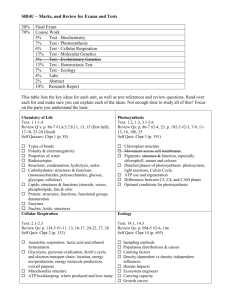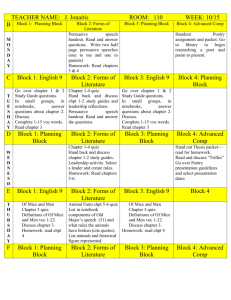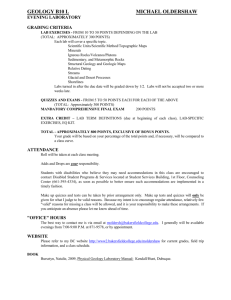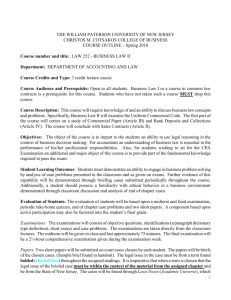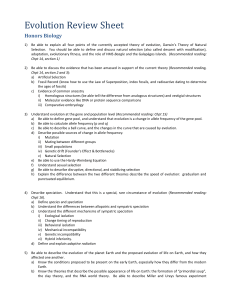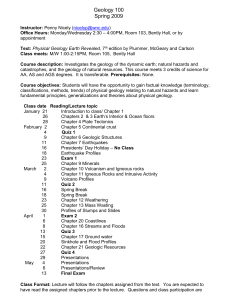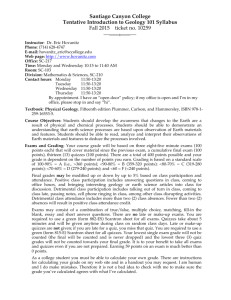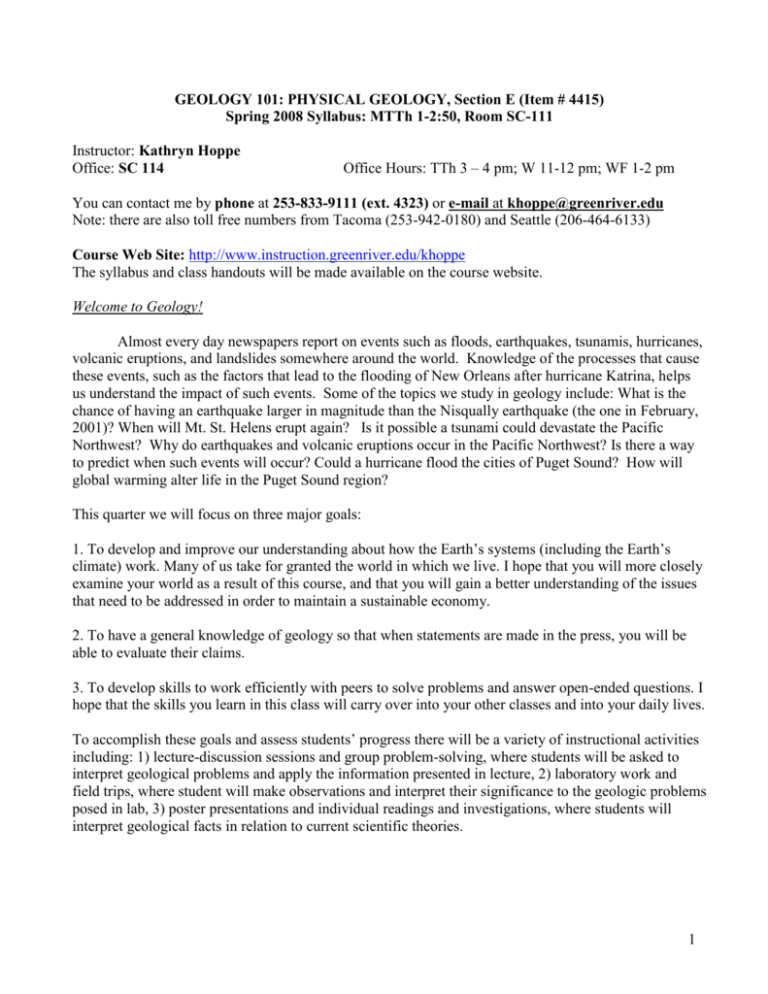
GEOLOGY 101: PHYSICAL GEOLOGY, Section E (Item # 4415)
Spring 2008 Syllabus: MTTh 1-2:50, Room SC-111
Instructor: Kathryn Hoppe
Office: SC 114
Office Hours: TTh 3 – 4 pm; W 11-12 pm; WF 1-2 pm
You can contact me by phone at 253-833-9111 (ext. 4323) or e-mail at khoppe@greenriver.edu
Note: there are also toll free numbers from Tacoma (253-942-0180) and Seattle (206-464-6133)
Course Web Site: http://www.instruction.greenriver.edu/khoppe
The syllabus and class handouts will be made available on the course website.
Welcome to Geology!
Almost every day newspapers report on events such as floods, earthquakes, tsunamis, hurricanes,
volcanic eruptions, and landslides somewhere around the world. Knowledge of the processes that cause
these events, such as the factors that lead to the flooding of New Orleans after hurricane Katrina, helps
us understand the impact of such events. Some of the topics we study in geology include: What is the
chance of having an earthquake larger in magnitude than the Nisqually earthquake (the one in February,
2001)? When will Mt. St. Helens erupt again? Is it possible a tsunami could devastate the Pacific
Northwest? Why do earthquakes and volcanic eruptions occur in the Pacific Northwest? Is there a way
to predict when such events will occur? Could a hurricane flood the cities of Puget Sound? How will
global warming alter life in the Puget Sound region?
This quarter we will focus on three major goals:
1. To develop and improve our understanding about how the Earth’s systems (including the Earth’s
climate) work. Many of us take for granted the world in which we live. I hope that you will more closely
examine your world as a result of this course, and that you will gain a better understanding of the issues
that need to be addressed in order to maintain a sustainable economy.
2. To have a general knowledge of geology so that when statements are made in the press, you will be
able to evaluate their claims.
3. To develop skills to work efficiently with peers to solve problems and answer open-ended questions. I
hope that the skills you learn in this class will carry over into your other classes and into your daily lives.
To accomplish these goals and assess students’ progress there will be a variety of instructional activities
including: 1) lecture-discussion sessions and group problem-solving, where students will be asked to
interpret geological problems and apply the information presented in lecture, 2) laboratory work and
field trips, where student will make observations and interpret their significance to the geologic problems
posed in lab, 3) poster presentations and individual readings and investigations, where students will
interpret geological facts in relation to current scientific theories.
1
Evaluation/Grades
1. EXAMS: There will be 4 in-class examinations during the quarter. Exams dates are shown on the
lecture schedule. The questions on these exams will be a combination of multiple choice, short
answer/objective, and/or essay questions. There are no make-up exams, but the lowest grades of the
first three exams, will be dropped. You must take the final exam (= Exam #4). Exam # 4 will be
cumulative and include a rock ID section. It will be given during the school’s final exam period.
2. LABORATORY: Each lab is worth 20 points. We have two lab modes: in the classroom and on field
trips. You should bring paper and something to write with to every lab session. Two lab field trips are
scheduled. On these days you will need to wear comfortable footwear that does not have slick soles and
something to protect you from the rain. Your feet may get damp from wet grass, so you may want to
have a change of shoes handy. Labs are due one week from the date they are 1st handed out unless
stated otherwise (for example, exceptions are made for Holidays). Labs must be turned in by 3:00 pm on
the day they are due. Late labs will be graded -10% for each day they are late. There are no make up
labs, but your lowest lab score will be dropped.
3. IN-CLASS EXERCISES AND GROUP DISCUSSION PROBLEMS: I have found that students
get more from this course and have more fun if we use some of the class time to investigate the Earth
rather than just have me talk/lecture about the Earth. So, on some days during class you will be asked to
complete a short in-class assignment. For group discussions, you will break into groups and work on the
solution to an open-ended problem. You and your group will discuss the situation and submit one written
answer by the end of the class. Only those present for the class and discussion will receive credit for
these problem. Missed in-class assignments can not be made up, but some of the points can be made up
by turning in extra credit assignments (see section labeled “extra credit” below).
4. QUIZZES: To make the group discussion problems work, each person must be prepared when she/he
comes to class. I cannot expect you to know the answers to the group questions if you have no
background, so it is important that everyone read the text prior to our lecture/discussion of the topic.
You will receive Reading Guides to help you read the text (title of text given below). These
guides will be distributed at the beginning of each unit. If you are not in class to receive a reading
guide you can download it from the website. We will have a quiz over the information in the Reading
Guides on the dates noted in bold type on the Tentative Course Schedule below. You may use your
Reading Guides and any handwritten notes that you have generated. The Reading Guide quizzes will
cover just the information in the Reading Guides, but I may also give you a couple additional quizzes
over material covered in lab. You are welcome to ask me questions about parts of the Reading Guide
that you do not understand or could not find in the text. The quizzes will be graded on a basis of points.
The quizzes will be about 10 points each. Quizzes will usually be conducted during the first ten
minutes of class. If you are late to class you will either miss the quiz or have less time to complete the
quiz. There are no make-ups if you miss a quiz, but your lowest quiz score will be dropped.
5. POSTER PRESENTATIONS: A poster is a visually-oriented stand-alone presentation of a topic.
You will be responsible for constructing and presenting a poster on a pre-approved geological topic.
The presentation will be done at a poster session on the last day of class (see the schedule). You must
present your poster in order to receive credit for this assignment. (Detailed instructions on how to
construct and present a poster will be given in a separate handout and are listed on the class webpage).
2
6. EXTRA CREDIT: You may earn extra credit points by writing a legible one-paragraph summary
on a current news report relating to a geological subject. The news must have been reported in a
reputable mainstream newspaper, magazine, or web-site. The news report must be less than 4 days
old. You must reference the original news report and bring a copy of the original story. You can
receive credit for a maximum of 3 news summaries (for up to 5 points each), and you should be aware
that I may share the information with the class (although I won’t use your name if you don’t want me
to). You may also receive up to 10 points extra credit on your poster project (see the poster project
description on class web site for more info). All extra credit must be turned in by the last day of
lecture.
GRADING
1. Exams: Midterm Exams (Best 2 out of 3) and Final Exam
2. Laboratory Exercises & Field Trips (20 points each)
3. In-class Exercises & Group Discussion Problems
4. Quizzes
5. Poster Presentations (due on the last day of classes)
50%
25%
10%
10%
5%
Final Grade: If you score above 90%, your grade is in the "A" category (3.5-4.0) and if your
score is between 80% and 90% your grade is in the "B" category (2.5-3.5), etc. However, if I give a
difficult exam and/or the average score for the class as a whole is low, I may curve the grades so that the
average grade is not below a 2.0.
At the end of the quarter the grades from the exams, labs, group discussion problems, the
quizzes, and the poster project will be averaged according to the weighting factors shown above to
determine the final grade. Note: If you miss more that 10 days of class, you may receive a grade of 0.0.
If you have questions about your grade, please let me know.
TEXT: Chernicoff, S. and D. Whitney, Geology, Fourth Edition; Pearson Prentice Hall Publishers
(available in the bookstore). An on-line study guide linked to the book is available at
http://wps.prenhall.com/esm_chernicoff_geology_4. Also, a previous edition of the text was published through a
different publisher. The web link for resources from that previous edition is http://www.geologylink.com.
Tutors: Ellen Jared (Wednesdays 11-1) Ellen is a former student in several GRCC geology courses
has been a tutor for several years. Ellen can help you in many ways, but she is probably most effective
in helping you when you have read the material or have tried the assignment, but you are stuck. She
can also ask you questions as you prepare for an exam. She volunteers her time because she is
interested in geology and people.
George Coulbourn (Thursday Mornings) George has a background in engineering and physics.
George has taught in a variety of situations and occupies much of his time now volunteering at Mount
Rainier National Park as a backcountry ranger.
3
Tentative Course Schedule Geology 101, Section E, Spring 2008 (Meets MTuTh)
(This schedule may change if we have snow days or other conditions changes- Any changes will be announced in class)
Wednesday
Friday
Tuesday
Thursday
Week Monday
March 31
April 1
April 3
Introduction/
Formation of the Earth
Volcanism /
1
Formation of the Earth
Reading = Chpt 1
Rocks & Minerals Intro
2
3
4
5
6
7
8
9
10
11
April 7
Volcanism & Volcanic
Landforms
Reading = Chpt 3
April 14
Igneous Rocks
& Volcanic hazards
Quiz = Chpt 4
April 21
Weathering
Reading = Chpt 5
April 28
Ground Water &
Glaciation
Reading = Chpt 16
Quiz = Chpt TBA
May 5
Landslides
Readings = Chpt 14
April 8
Volcanic Landforms & Igneous
rocks
Quiz = Chpts 1 & 3
April 15
Volcanic hazards:
Mt. St. Helens / Mt. Rainier
April 10
Igneous Rocks
& Volcanic hazards
Reading = Chpt 4
April 17
April 22
Rivers & Flooding
Reading = Chpt 15
April 29
Glaciation & Climate Change
Reading = Chpt 17
April 24
Rivers & Sed. Rocks
Reading = Chpt 6
May 1
May 6
May 8
Shorelines
Reading = Chpt 19
May 12
Geologic Time
Readings = Chpt 7
May 13
Geologic Time &
Metamorphic Rocks
Quiz = Chpt 7 & 8
May 20
Deformation & Earthquakes
May 15
May 27
May 29
Inner Earth
Reading Guide
Discussion for Chpt 11
June 5
Review Day
May 19
Metamorphic rocks &
Deformation
Reading = Chpt 9
May 26
Field Trip # 1
Rivers
Exam # 2
Field Trip # 2
Landslides
May 22
Earthquakes cont.
Quiz = Chpt 10
Exam # 3
Holiday
(No Classes)
June 2
Plate tectonics
Reading = Chpt 12
June 3
Plate tectonics
Reading = Chpt 13
June 9
June 10
Student Poster
Presentations
Exam # 1
Study Day
(No classes)
Wednesday
June 11
June 12
Exam # 4
(1 pm)
4
Content Specific Learning Outcomes: (Student Achievement during the course)
This course has five primary goals:
1. You will correctly apply information presented during the lectures to the solutions of open-ended
questions.
2. You will correctly identify common rocks and the processes that form them along with relative age
history principles to discuss the history of a geological map.
3. You will make observations (in class and on field trips) and correctly link those observations to
information from the course.
4. You will correctly use a computer to analyze or obtain geological data.
5. You will develop skills to work effectively with peers in finding solutions to geological problems
These outcomes will be demonstrated by: 1) successful achievement on lab quizzes and exams, 2)
reports from experiences in the laboratory and on field trips, 3) responses to group discussion
questions, 4) your presentation of a poster project.
Campus-wide Learning Outcomes: Green River Community College has identified ability areas that
we believe encompass knowledge and are the most important skills that students will need in order to be
successful after leaving college. This course will focus primarily on developing one of these outcomes:
Critical Thinking Ability.
You will be asked to examine your geological thinking by:
1) Explaining your ideas to open-ended questions (in some cases I ask that students defend their choice
of more specific answers)
2) Observing geological features on field trips and applying them to questions posed in the lab
3) Applying information from lecture to problems presented during class
4) Using information on geological processes to determine the history of a geological map. Students
must apply their knowledge of how various rocks form and knowledge of relative age principles.
This outcome will be demonstrated by student responses to answers on examination, lab quizzes, lab
reports from in-lab exercises and field trips, and group discussion problems during the class period,
and a poster presentation.
5
Learner Responsibilities:
I expect you to be present in class each day.
I expect that you will treat all the students in the class and me with respect. Please, no music
players, game players, or portable phones/audible pagers (unless you check with me before
class and it is an emergency).
I expect that you will be prepared for class each day and that you will have read the assigned
material for that day.
I expect that you will not talk to other classmates during class, unless I have divided you into
groups for the purpose of discussion. If you have a question about the class material please raise
your hand and I’ll answer your question directly.
I expect that you will be ready to start class at the beginning of the class time and will remain in
the class until the end of the class period.
Characteristics of an "A" Student:
Sometimes when a student is not doing as well in this course as they would like I hear the question,
“What do I have to do to get an A?” There is no easy answer to that question, but I hope the discussion
below will help you.
Although excellent students are not all the same, the following are characteristics that I have noted
which are almost always present in "A" students:
•
They attend class every day. Absence rates among “A” students are usually very low.
•
They understand the material rather than relying upon memorization for the test. They are able to
apply ideas learned in other parts of the class (and other classes) to the issues they are studying.
•
They are prepared for class. They have read the assigned material before the class session and are
ready to ask questions and discuss the material. Their work is on time and neat.
•
They have the attitude that the primary responsibility for their learning is their own, not the
instructor's. These students will do well in spite of the particular instructor in a class.
•
They work well in groups. They have good communication skills and are willing to listen to the
ideas of others.
•
They study actively. They do not just sit and read the text. They use the study guides provided.
They outline, take notes, and solve problems as they read. This helps their retention and
understanding of the material.
6
Policy on Late Papers:
LABS: Labs are due one week from the date when they are 1st handed out, unless stated otherwise
(for example, accommodations are made for holidays). Papers must be submitted to me or my mailbox
by 3 PM the day they are due or they will be marked late. Do not use class time to complete a laboratory
assignment. If I see you working on a late assignment during lab, the assignment is due at that time.
Late labs will be graded -10% for each day they are late. Any late lab paper must be submitted
to me before I return the graded papers to the other students. I will not accept labs that are submitted
after I have returned to the lab papers to the other students.
Policy on Cheating:
In this course you will be working in groups and by yourself. Individual assignments, such as most of
the labs, may be discussed in a group, but must be written individually. Do not give your paper to
someone else! Exams are closed book, closed notes, and obviously are to be your own work. You may
use your Reading Guides to help you during quizzes, but quizzes must be taken individually. If
individuals are found to be cheating, their names will be given to the Dean of Instruction for further
action that may range from no credit in the exam/assignment to removal from the college.
Policy on Visitors in Class:
Faculty members at GRCC have been directed to not permit children of students to attend classes. I
understand that sometimes it is very difficult to make daycare arrangements. However, the policy from
our administration is very clear and I will have to enforce the rules. If a person is over 16 and would
like to attend the class, please see me several days ahead of the class sessions to obtain permission.
Special Needs:
If you believe you qualify for course adaptations or special accommodations under the Americans
With Disabilities Act, it is your responsibility to contact the Disabled Students Services Coordinator in
the LSC and provide the appropriate documentation. If you have already documented a disability or
other condition that would qualify you for special accommodations, or if you have emergency medical
information or special needs, I should know about, please notify me during the first week of class.
You can reach me by phone at 253-833-9111, extension 4323. Or, you can schedule an office
appointment to meet me in SMT 235 during my posted office hours or at another mutually determined
time. If this location is not convenient for you, we will schedule an alternative place for the meeting.
If you use an alternative medium for communicating, let me know well in advance of the meeting (at
least one week) so that appropriate accommodations can be arranged.
A FINAL NOTE
I sincerely believe that each of us can be a resource in this course. I hope you will ask questions,
initiate discussion, and take an active part in making our lectures more like discussions. In this way, I
think we will all learn more!
7

